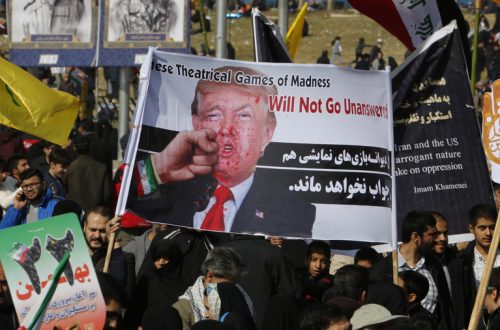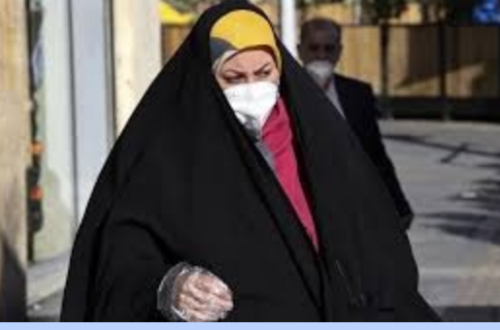Cross-posted from Sohrab Ahmari in The Boston Globe
Dictators silence dissent in myriad ways. But one Iranian dissident, trade unionist Mansour Osanloo, had his tongue sliced by members of Islamic Republic. The crime that mandated such a punishment? Seeking better working conditions for his fellow bus drivers in Tehran.
In 2005, Osanloo organized 17,000 transport workers to form Iran’s first post-Revolution independent union. The group managed to secure salary increases for Tehran’s underpaid bus drivers and child-care allowances for female workers. But the union paid a price for extracting concessions from the state-run company: its leaders were detained and tortured. Osanloo, convicted of bogus “national security’’ charges, remains jailed in Tehran’s Evin prison.
Repression of Iranian workers extends far beyond Tehran’s bus drivers. Last month, members of the Iranian Teachers Trade Association launched a nationwide hunger strike to protest unpaid wages and the arbitrary detention of teachers who question state education policy. The regime again responded with brutality, executing teacher Farzad Kamangar and four other activists from the minority Kurdish community. Fearing that public funerals could spark antigovernment protests, the government then shamelessly refused to turn over their bodies to relatives for burial.
Iran’s repression of labor organizers belies the regime’s claims of being a beacon of “hope for the dispossessed’’ around the world. In the Revolution’s early days, Ayatollah Khomeini won support from some progressives by employing the rhetoric of social justice. Today, Iranian leaders spend many millions of petrodollars on international PR campaigns branding Iran as a defender of the oppressed against “global arrogance,’’ i.e. the United States and its allies.
Despite these efforts, Iran’s Islamic Republic is an increasingly toxic brand. Last June, the regime showed its true colors by rigging presidential elections and violently cracking down on masses of Iranians protesting the results. With a ruthless response to millions of citizens seeking to have their votes count, the mullahs abdicated whatever remained of their revolutionary mandate. The murder of Neda Soltan, a young woman observing the post-election protests, sealed the moral bankruptcy of their dictatorship.
A year has passed since the heady days when Iranians took to the streets in a colorful display of popular protest. Despite their valiant effort, the regime has managed to drive most dissent back underground. But discontent remains high and serious structural problems persist, including corruption, catastrophic unemployment, and the volatility of the price of oil.
Precisely because Iranian leaders are acutely aware of this economic impasse they treat such labor leaders as Osanloo so harshly. The mullahs know that it took a massive general strike by Iranian workers to finally topple the shah — and usher in their own rise to power. This is also why the Iranian labor movement deserves the support of Western progressives, just as American unions spoke out in support of Lech Walesa’s Solidarity during the 1980s.
Tomorrow, we have a chance to take a stand. June 12 has been declared a memorial day. In Tehran, leaders of the Green movement have requested — as is their right under Iran’s constitution — a permit to hold a rally marking the election’s anniversary. In 50 cities worldwide, including Boston, people will gather in solidarity with Iranians risking their lives simply by organizing a peaceful protest.
As an Iranian who grew up in Tehran before seeking refuge in the United States, I urge my fellow Americans of all backgrounds to set aside their policy differences — just as Iranian protestors have — and unite around the call for free elections and human rights in Iran. Mansour Osanloo may be incarcerated, and his tongue cut, but we can be his voice and his spirit.
Sohrab Ahmari, a member of the American Islamic Congress’ New England Council, is one of the organizers of tomorrow’s vigil and a law student at Northeastern University.


